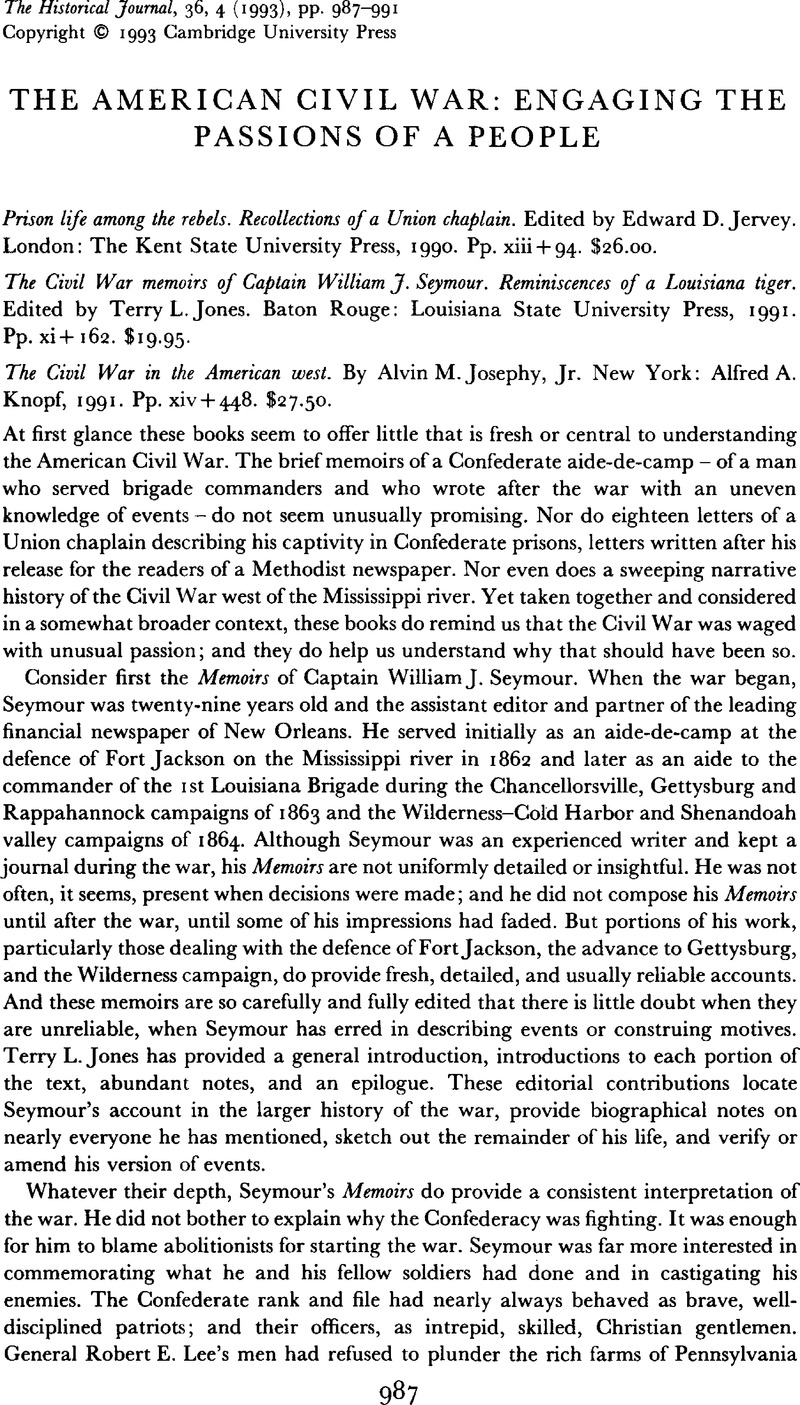No CrossRef data available.
Published online by Cambridge University Press: 11 February 2009

1 A cursory inspection of the principal battlefields of the War for American Independence and of the Civil War will show that the American people have done far more to commemorate the Civil War than the War for Independence. There are literally hundreds of monuments at Gettysburg and Vicksburg and no more than a handful at Brandywine, Saratoga and Yorktown.
2 Nearly 1.6% of the population of the United States was killed or died in service during the Civil War. By comparison, 0.9% of the population perished in the War for Independence; 0.28% in World War II; 0.12% in World War I; and 0.06% in the Mexican War. Peckham, Howard H., ed., The toll of Independence engagements & battle casualties of the American revolution (Chicago, 1974), pp. 132–3Google Scholar.
3 Conway, Stephen, ‘To subdue America: British army officers and the conduct of the revolutionary war’, William and Mary Quarterly, third ser., XLIII (07 1986), 381–407CrossRefGoogle Scholar. Conway makes clear that British officers understood that the War for American Independence was ‘a contest for the political allegiance of the people’ (p. 381). Although British officers did not agree how best to gain that allegiance – whether by moderate or harsh measures – only a small portion of the officers favoured harsh measures because they hated the colonists. The British were not always successful in curbing passion, but they seem to have set a moderate tone that drew forth a similarly moderate response from the colonists. Flexner, James Thomas, George Washington in the American revolution (1775–1783) (Boston, 1968)Google Scholar.
4 McWhiney, Grady and Jamieson, Perry D., Attack and die: Civil War military tactics and the Southern heritage (University, Ala., 1982)Google Scholar.
5 Grimsley, Mark, ‘Hard war: changes in federal policy toward Southern civilians and property, 1861–1865’ (unpublished Ph.D. dissertation, The Ohio State University, 1992)Google Scholar.